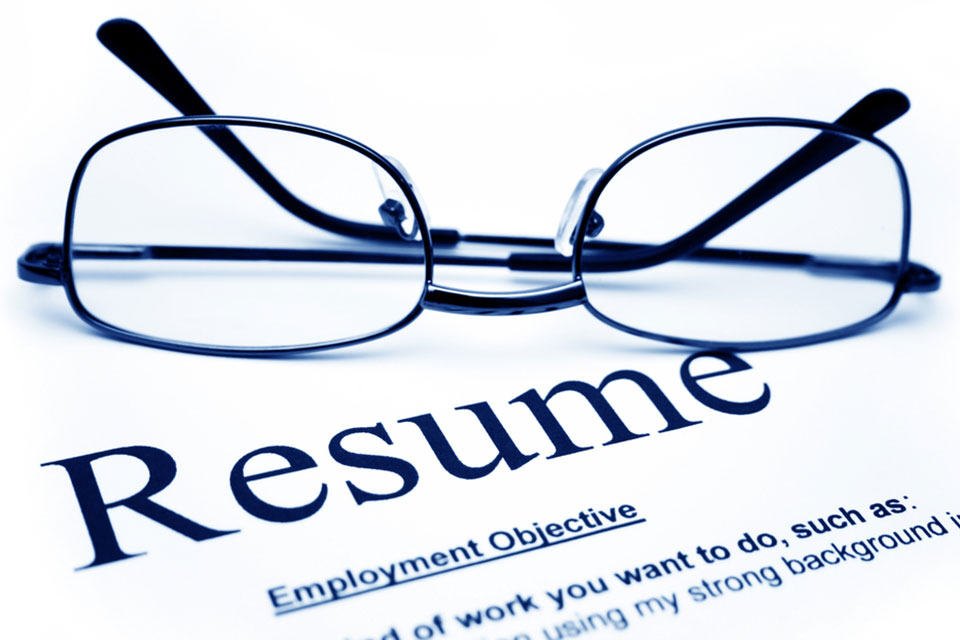Overused Resume Phrases That You Have To Remove From Yours

Being qualified for a job is essential but doesn’t guarantee you the position due to numerous individuals competing for the role. The best way to stand out in this sea of professionals is to present a resumé that articulately presents your qualifications and impress the recruiters.
However, the process of impressing recruiters is tricky as they are several factors that can either make or break your chances of success. This article will help reduce your chances of failure by presenting specific phrases that ruin your resumé and deny you your desired role.
Your resumé will appear more professional and make a concrete first impression with these words out of your document. Let’s begin!
Using a Resumé Builder
Building a resumé from scratch is a relatively tricky task as it involves factors like using the correct font, format, length, structure, and many more. Couple this long list of expectations by remembering your previous achievements and avoiding specific phrases, which becomes more complicated.
Fortunately, you can ease the hassle with ResuméBuilderPro, a platform dedicated to helping you create a professional resumé. It helps you produce a suitable CV through its long list of templates.
Once you pick one of the 4000+ templates, modify the file and insert your experience, achievements, and skill. It is easy to use, saves you time, and is secure. Visit Resumé Builder pro and compose a resumé within minutes.
- “People Person.”
Naturally, companies prefer skilled professionals that can work with a team without complications. This fact might tempt you to dedicate an entire paragraph or two to your social intelligence, but that is entirely unnecessary.The resumé is meant to present your qualifications and previous achievements in the most articulate manner possible. Once your efficacy is apparent, and the recruiter understands the value you bring as an employee, the next step is to attend the interview.During this interview is where you can reveal your social skills and how well you communicate effectively. Recruiters use this time to see if you’re a proper fit for their corporate culture, meaning you provide no useful information by stating your social skills on your resumé.
- “Quick Learner.”
Your resumé should be dense with information regarding your previous accomplishments, current skills, and anything relevant. If you feel compelled to include a paragraph stating you’re a quick learner, you indirectly signal to the employer that you possess little skills that are worth your resumé’a precious space.Like “people person,” you don’t need to verbally include this information in your resumé as it is meant for an interview. During this process, the interviewer will assess whether you understand the position and ask specific questions to deduce your speed of adaptation.If you feel compelled to include this soft skill in your resumé, ensure to pair it with a task that requires quick learning. This can include learning a new programming language in less than a week, understanding a new piece of complicated machinery, and anything of the sort.
- “My Hobbies Include….”
It’s admirable that you enjoy hiking, skating, reading new books, and solving puzzles, but such information is unnecessary, especially if it is useless to the recruiter. While presenting your favorite activities helps people reduce your personality, employers do not desire this knowledge since they care about your value to the company.If your hobbies are directly linked to the job, you can rephrase the sentence to make it seem more like valuable content than fluff. Essentially, your resumé must be short and dense with valuable information and including hobbies instead of achievements and skills hints at poor quality.Note that you will get the opportunity to present whatever beneficial hobby you possess to the recruiter during the interview process, as numerous questions may prompt the release of such information.
- “Goal-Oriented”
Although you pride yourself on being goal-oriented and passionate about outing the task above your desires, it is not a particular trait. Almost everybody in the corporate world is goal-oriented and has worked hard throughout their lives; therefore, one character ensures your survival as a corporate individual.Essentially, your recruiters expect you to possess this skill, and if you have a long list of achievements and skills, anyone can deduce your dedication to your career. Therefore, dedicating a paragraph or a sentence to this widespread trait is unnecessary and counts as fluff.Instead of verbally highlighting your ability to set goals and accomplish them, specify which worthwhile milestone you have achieved in your career.
- “Hard Working.”
This tip is similar to goal orientation; stating you’re hardworking or the best at what you do is unnecessary. First of all, it is fluff that brags about your skills without presenting adequate justification for the claim. Secondly, employers don’t hire individuals who slouch off at their jobs; you’re expected to work your best and offer peak value.Therefore stating you’re the best provides no value; instead, present your previous accomplishments like how you became an employee of the month several times, how you finished a task no one else could handle, etc.Such information is more valuable as employers can imagine your working as desired in their organization. Essentially, we recommend ditching this phrase and letting your works speak for you.
- “Problem solver.”
Having problem-solving skills is an essential part of being in the corporate world, as complications arise on several occasions. Essentially, branding yourself to rectify issues is unnecessary, as every recruiter expects such a skill from you.As previously stated, if you wish to brag about your soft skills, do so with previous accomplishments. Talk about when you fixed a problem, helped a coworker finish their task during an emergency, etc. Additionally, verbally stating your skill has no credence as only individuals like your former boss and coworkers can vouch for your problem-solving ability. Therefore, instead of focusing on an irrelevant trait, dedicate the paragraph to something more relevant. - “You…”
It would help if you never addressed the recruiter on your resumé irrespective of the situation. Some applicants included phrases like “you won’t be disappointed…”, “you probably…”, etc. Those are irrelevant and a turn-off for employers.Your job with the resumé is to articulately present your qualifications, past experiences, and skill without fluff or irrelevant content. In addition, directly assessing the recruiter is irritating and condescending, despite it not being your intention.Ensure to speak about your past experiences and skills and only reference the company when necessary.
Building a resumé for the first time is tricky as you need to pay attention to many important details; nevertheless, these elements are essential for securing your desired job. With the tips presented above, you should have a sufficient understanding of phrases to avoid in your resumé.
As previously mentioned, your resumé is meant to present your skills, achievements, and experience, enabling the recruiter to deduce whether you’re a valuable fit for their company. Therefore, avoid including sentences or paragraphs that are overgeneralizing and overly unnecessary.
Additionally, don’t forget to visit Resumé Builder pro if building a resumé is difficult; it provides you with the tools and guidance you need to succeed in the corporate world.
Bring the best of the CEOWORLD magazine's global journalism to audiences in the United States and around the world. - Add CEOWORLD magazine to your Google News feed.
Follow CEOWORLD magazine headlines on: Google News, LinkedIn, Twitter, and Facebook.
Copyright 2025 The CEOWORLD magazine. All rights reserved. This material (and any extract from it) must not be copied, redistributed or placed on any website, without CEOWORLD magazine' prior written consent. For media queries, please contact: info@ceoworld.biz













